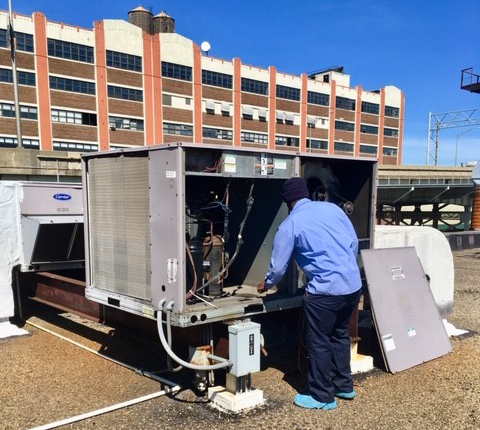Illinois health officials are investigating a Legionnaires’ disease outbreak at a senior home in Plainfield – already the fifth Legionnaires incident in the state this month, all affecting residents of retirement homes.
Two residents at Lakewood Nursing Home and Rehabilitation Center were confirmed with the pneumonia-like illness, prompting an investigation by both the Will County Health Department (WCHD) and Illinois Department of Public Health (IDPH).
Legionnaires’ disease – which is also known as legionellosis or Legionella pneumonia – is a respiratory illness that is contracted when people inhale microscopic aerosolized water droplets (vapor or mist) contaminated with Legionella.
No potential Legionella sources outside the facility have been identified, and the investigation is focusing on Lakewood Nursing (14716 South Eastern Avenue).
Plainfield outbreak: IDPH recommendations
IDPH recommended that Lakewood Nursing conduct surveillance to identify other potential cases. They also suggested that the facility review its water-management plan, and take necessary steps to reduce exposure to aerosolized water, which could include restricting water use, installing point of use filters, flushing water through pipes and fixtures, and implementing other protective measures.
“Although it is not clear that these environmental risks have come from Lakewood Nursing, as a safety precaution, we have implemented our water management program and environmental risk protocol,” Ron Nunziato, CEO of Extended Care, consultants to Lakewood Nursing, said in a statement. “In addition, this facility has been working with the County and State Departments for guidance, and a water specialist, for any assistance they may provide.”
A 2015 study by the Centers for Disease Control and Prevention (CDC) stated that “75 percent of (Legionnaires’ disease) acquired in health-care settings could be prevented with better water management.”
Last week, it was learned that a deadly outbreak struck the Covenant Living at Windsor Park retirement home in Carol Stream. Two residents died, and a third was sickened at the DuPage County facility in the past eight months.
Earlier in the month, two residents at Balmoral Nursing Home and one resident at The Admiral at the Lake were diagnosed with the respiratory illness. The two North Side nursing homes are less than 2 miles apart in Chicago. It’s still unknown what caused those illnesses.
Plainfield outbreak: disease on the rise
Legionnaires is “an emerging disease in the sense that the number of recorded cases of Legionnaires in the United States continues to increase,” Laura Cooley of the CDC’s Respiratory Diseases Branch said in a 2017 interview.
Cooley said she believes the increase is due to the rise in the susceptibility of the population, with more and more people on immunosuppressive medications. She also said there could be more Legionella in the environment because warmer temperatures create the right conditions for bacterial growth.
Last year was the second-hottest in the 140 years that temperatures have been recorded, the National Oceanic and Atmospheric Administration reported. No. 1 on the list is 2016.
As a matter of fact, the world’s five warmest years all have occurred since 2015, and nine of the 10 warmest years have occurred since 2005.
Plainfield outbreak: increased risk for seniors
Senior living facilities are common locations for outbreaks because of the following:
- They house at-risk populations.
- They often have large, elaborate water and plumbing systems, common delivery systems for Legionella.
- Residents have limited or no exposure to outside sources of the bacteria.
In addition, most people exposed to Legionella do not get sick, but people 50 years old and older – especially those who smoke or have chronic lung conditions – are at a higher risk.
Other people more susceptible to infection include:
- recipients of organ transplants
- individuals who are on specific drug protocols (corticosteroids, to name one)
- heavy drinkers of alcoholic beverages.
This list also includes anyone with an immune system weakened by:
- frequent and recurrent pneumonia, bronchitis, sinus infections, ear infections, meningitis or skin infections
- organ inflammation and infection
- blood disorders, such as low platelet counts or anemia
- digestive problems, such as cramping, appetite loss, diarrhea, and nausea
- delayed growth and development.
After Legionnaires’ disease has been diagnosed, hospitalization is often necessary. In the most severe Legionnaires cases, complications can include respiratory failure, kidney failure, septic shock, or even death.
Source:


